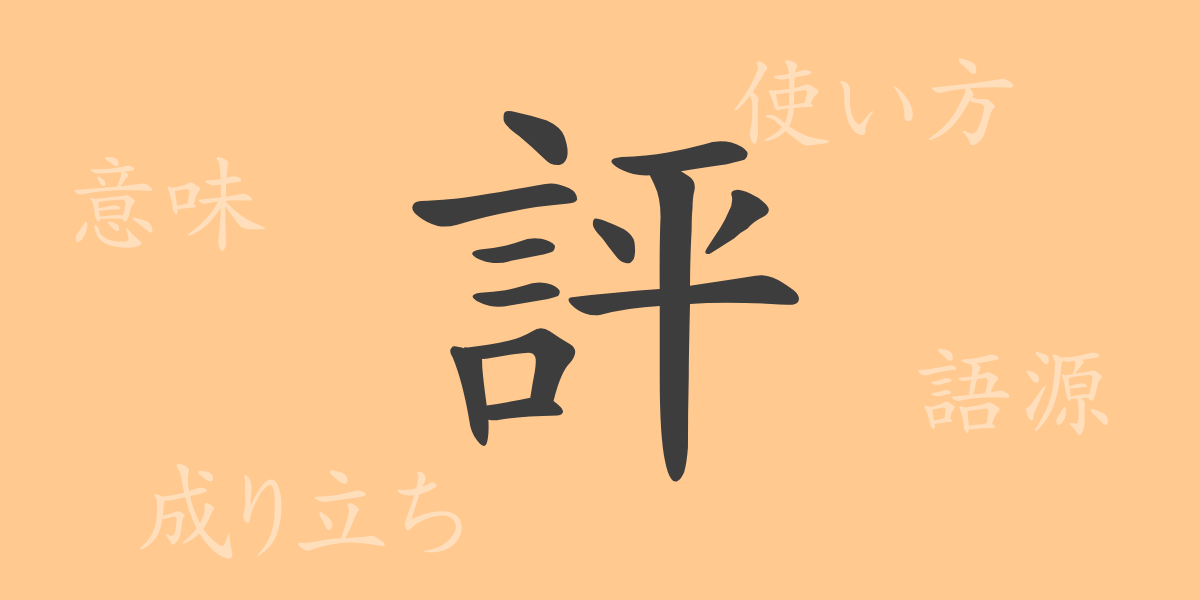The culture of Japan can be deeply understood through the meanings and history embedded in single kanji characters. This time, we spotlight the common kanji “評” (hyou), delving into its origins and modern usage. Through the rich expressive power of this character, let’s explore the profound depth of words.
Origins of 評 (hyou)
The kanji “評” (hyou) originated in ancient China, and its form comes from the meaning of reporting the results of divination. The pictographs that shaped words evolved to refer to evaluating meanings. This kanji, used to represent evaluation and judgment through words, is still widely used in various contexts today.
Meaning and Usage of 評 (hyou)
The kanji “評” (hyou) means to judge the value of people or things and to express opinions. It is often used in words like “評価” (hyouka) meaning evaluation, “評判” (hyouban) meaning reputation, and “評論” (hyouron) meaning critique. Especially in business and education fields, the importance of evaluation is emphasized. Additionally, in everyday conversation, it is used to express opinions or impressions about people’s actions or events.
Reading, Stroke Count, and Radical of 評 (hyou)
The kanji “評” (hyou) possesses fundamental elements in the Japanese language.
- Reading: The on’yomi (音読み) is “ヒョウ” (hyou), and there is no kun’yomi (訓読み).
- Stroke Count: It has a total of 12 strokes.
- Radical: The radical is 言 (ことばへん, kotoba-hen) meaning words.
Idioms, Expressions, and Proverbs Using 評 (hyou) and Their Meanings
There are numerous idioms, expressions, and proverbs in Japanese that include the kanji “評” (hyou). For example, “評価” (hyouka) means to judge the value of something, “評判” (hyouban) refers to opinions or rumors among people, and “評論” (hyouron) means critique of literary or artistic works. These words are used in various situations in daily life, enriching communication.
Summary of 評 (hyou)
The kanji “評” (hyou) is an important character representing the evaluations and judgments we make daily. From business to everyday conversations, this kanji plays an indispensable role in facilitating smooth communication. Through this single character, one can glimpse the importance of words and the profoundness of communication.

























